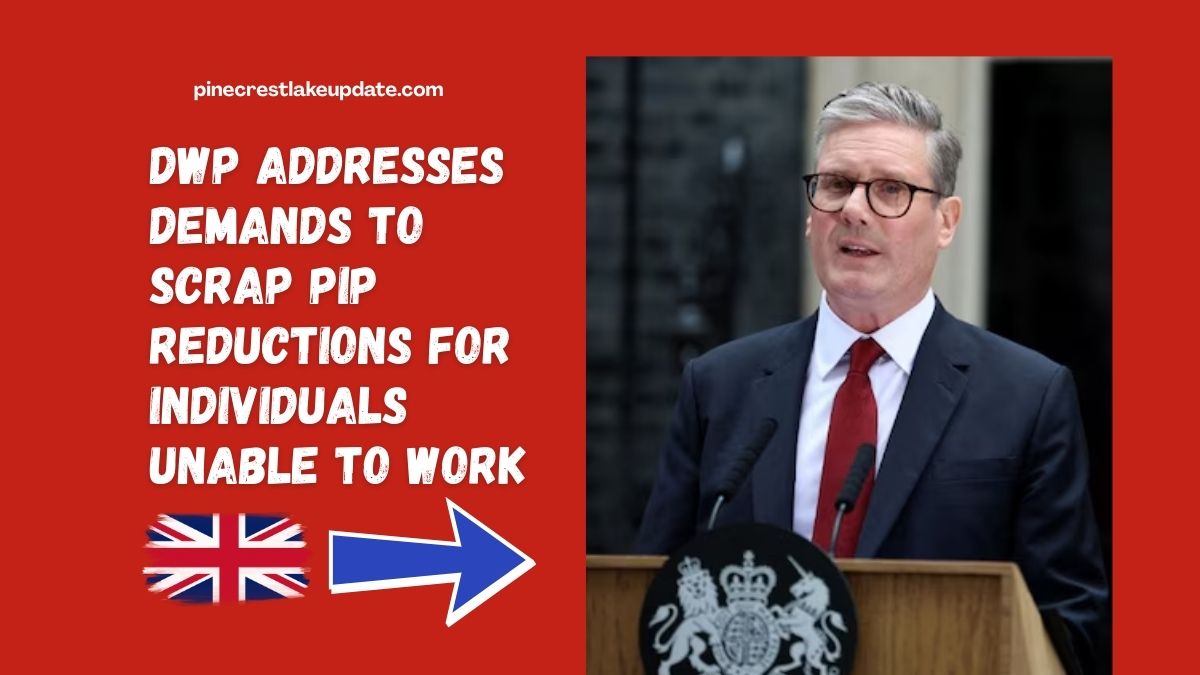The Department for Work and Pensions (DWP) has responded to growing concerns regarding planned cuts to benefits for individuals with disabilities, particularly those unable to work.
This comes as millions of benefit recipients face changes expected in November 2026.
Potential Cuts and Their Impact
The government plans to tighten eligibility criteria for Personal Independence Payments (PIP), targeting those with higher needs, which could potentially exclude many current recipients. The aim is to cut £5 billion from the benefits budget.
Focus on Personal Independence Payments (PIP) and Universal Credit
According to the Office of Budget Responsibility, the majority of savings will come from tightening PIP eligibility and reducing the health-related component of Universal Credit. This move could impact around 800,000 claimants for PIP and 3 million families who rely on Universal Credit.
Projected Impact of Proposed Cuts
The Resolution Foundation has raised concerns, estimating that these cuts to PIP could result in 800,000 to 1.2 million people losing between £4,200 and £6,300 annually by the end of the decade.
Public Petition Against the Cuts
A petition, now with over 10,000 signatures, urges the government to protect disabled individuals who cannot work from the planned cuts. The petition states:
- “We want the Government to halt all planned benefit cuts for disabled people unable to work.”
- “We believe that disabled individuals who cannot work should not face cuts.”
- “Acquired disabilities can end careers, and those who previously contributed to taxes deserve support.”
Campaign’s Additional Statements
The petition campaign further argues that disabled individuals should receive steady support without cuts, as the pandemic has widened the financial gap. The extra costs of living for disabled people have increased, making these proposed cuts even more damaging.
The petition adds: “We believe forcing disabled individuals to work will put unnecessary pressure on the already fragile NHS, and those unable to work should not be punished.”
DWP’s Response to the Petition
After the petition surpassed the 10,000 signature mark, the DWP issued a response. The department acknowledged the welfare system’s shortcomings, claiming, “Our welfare system is broken” and costs nearly a third of the NHS’s budget.
They argued that the current system leaves people reliant on benefits for years with no support or opportunities to improve their living standards.
The department emphasized that individuals in work are three times less likely to experience poverty compared to those out of work. However, they also acknowledged the need to address inequality and ensure support for people who need it, both now and in the future.
Changes to Benefits and PIP Eligibility
The government’s proposed changes include a reduction in some Universal Credit rates and a change in PIP eligibility criteria. These changes are set to take effect in 2026, but there will be an increase in the standard allowance for new and existing claims.
Other benefits, including PIP, will at least rise in line with inflation as a statutory minimum. However, these proposed changes will only be implemented after parliamentary approval.
Next Steps
The proposed changes are still in the green paper stage and remain under consideration. If the petition reaches 100,000 signatures, it could trigger a debate in the House of Commons.
The upcoming cuts to PIP and Universal Credit have raised significant concerns regarding the future financial security of disabled individuals, especially those unable to work.
The government’s attempt to tighten eligibility for PIP and reduce benefits has sparked a major public outcry, prompting petitions and calls for reassessment.
As the proposed changes move toward 2026, it remains to be seen how these decisions will affect the welfare system and its most vulnerable beneficiaries.
FAQs
What are the main proposed changes to PIP and Universal Credit?
The government plans to tighten eligibility for PIP and reduce the health component of Universal Credit, aiming to save £5 billion from the benefits budget.
How will these cuts affect disabled individuals?
These cuts could lead to around 800,000 to 1.2 million people losing £4,200 to £6,300 annually, exacerbating the financial strain on disabled individuals who cannot work.
What actions are being taken to address the public concern over these cuts?
A petition with over 10,000 signatures is calling for the government to halt the cuts for disabled people unable to work, with potential for further action if it reaches 100,000 signatures.

